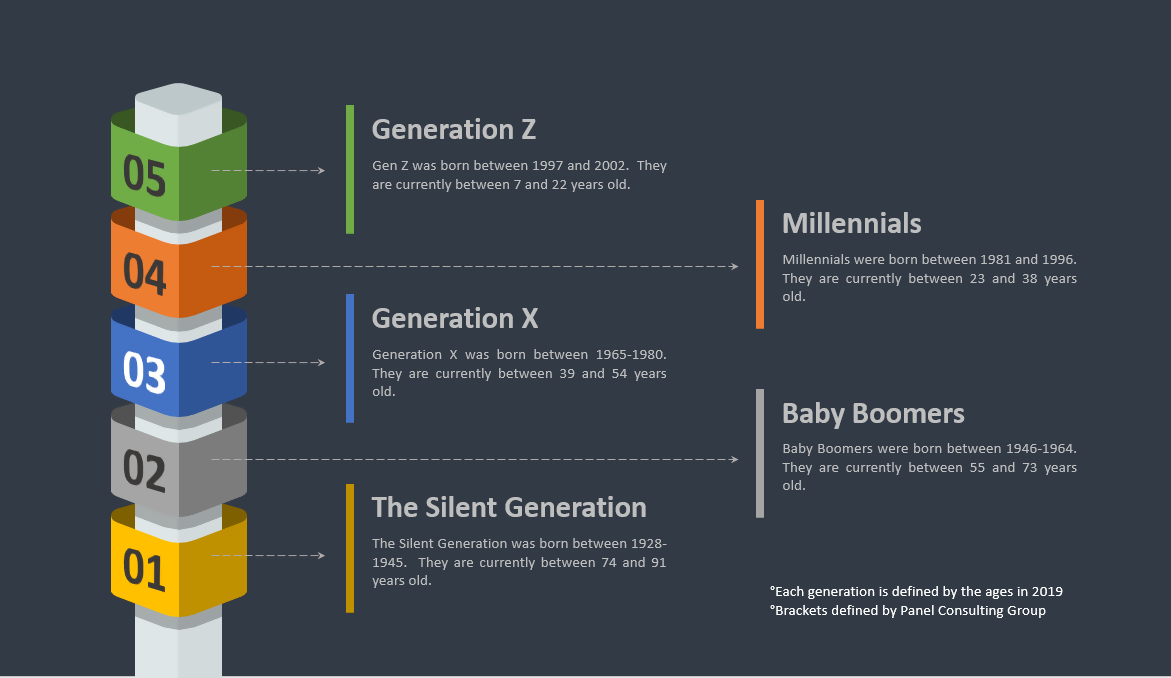When building a brand, businesses, institutions, and organizations need to connect with their users. When brands connect with their users, this connection enables them to provide a rich experience that deepens brand loyalty. When we look at how different consumers have adapted to the use of certain products and services, it is fair to note that there are unique differences between generations.
In the middle of this sphere are two key generations – Millennials and Generation Z. Both are hugely receptive to the convenience of apps, of using technology on-the-go, and integrating these interfaces into their everyday lives. Therefore, these markets are prime candidates for engagement with mobile ethnography.
Appealing to Millennials
Millennials often get a bad reputation. They are often labeled as dependent or demanding. The fact of the matter is, however, that they are a crucial generation in the middle of the technological revolution. While these individuals may have been the last generation to experience life before smartphones and the internet, they are still more likely to be engaged through technology than through face-to-face interviews.
The reason for this is that Millennials have grown to crave convenience. This is a generation who has been struck by periods of recession and low employment. While this may vary throughout the world, Millennials have adopted a more frugal attitude than Generation X or Baby Boomers. That means you are automatically going to capture their interest if you offer something of genuine value.
A Life Lived Online
Millennials love to share their opinions. Social media, of course, is to blame for this phenomenon. Using the Millennial birth bracket of 1981-1996, most people born between these years will have experienced the likes of Myspace, AOL, and Facebook as children, teenagers, and young adults. They are conditioned to sharing their lives online. That isn’t to say that some Millennials won’t be reserved about what they share, but a high percentage are doing so consistently. Generation Z is far more likely to be open and honest, as they’ve always lived life this way.
With this in mind, mobile ethnography, via a service such as EthOS, is perfect for the Millennial profile. Mobile research will allow people in this generation to quickly and efficiently carry out tasks, share their opinions, and do so with potential rewards at the end. It also eliminates the need for face-to-face interaction.
Appealing to Generation Z
Generation Z is young, but they have a drastically different outlook on life. Gen Z is more self-aware, more concerned about the world around them, and more involved with technology. It’s not hard to understand why – the oldest members of the generation were born around 1997, which places them right at a point in time where the internet was becoming more and more accessible in homes.
Generation Z has grown up with access to smart technology. Even the oldest in this generation will have been teenagers when the iPhone started transforming the way we communicated with one another. Generation Z has also grown up in a period of uncertainty. The world has perhaps never been more dangerous than it is today.
With access to 24/7 news media and constant reports of what’s happening in the world, Gen Z is perhaps the most ‘woke.’ That is, in the sense that they are actively trying to make changes, often with very realist attitudes.
A Sense of Realism
While Millennials may have grown up with a sense of idealism, Generation Z has grown up knowing that making realistic and sustainable choices is the way forward. This is going to have a significant effect on our economy and how brands operate as they move into the future.
All in all, mobile ethnography is an ideal playground for Gen Z, providing that there is a hands-off approach. This generation is more self-aware than those who have come before them. They will, therefore, be less likely to engage with corporate cajoling.
Mobile ethnography is ideal for Generation Z because it gives them a modicum of power over corporate decision-making. Gen Z grew up with apps and smart technology, which means using a mobile interface shouldn’t ever be a problem. The allure of being able to provide feedback and impact the world around them will be powerful. While Millennials have a strong sense of self-worth, Gen Z has a strong sense of self-impact.
Generation Z is ambitious and very savvy with current technology. The right mobile ethnography will be invaluable for brands who are keen to learn more about how these young people tick. However, it’s advised that your campaigns should tread lightly.
This generation is moving away from public social media to more introspective platforms such as Snapchat and Instagram. This is a market of people who will be happy to share their opinions with you, but only providing they will make a difference.

Conclusion
The smart revolution is already underway. Mobile ethnography is built for engagement with Millennials and Generation Z. It’s not just the technology factor, however. For older users, it’s the convenience, and the allure of sharing an opinion, and maybe getting something back. For younger people, it’s the ability to capture their own experience in a bid to influence change. With the right mobile ethnography campaign, you’ll be able to inspire thousands of people from both generations. We’ve spent decades trying to understand ‘the youth’ – and the best way to do that is to encourage them to share their opinions in a manner that is convenient to them.

